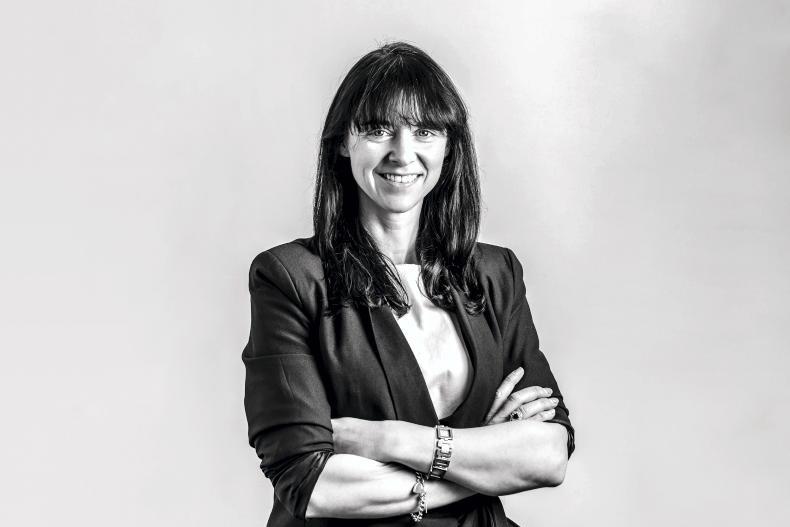My little girl pulled on my sleeve, the eye shadow pallet in her hands thrust up toward me. “How do I put this on?” she asked. Subconsciously I started with “Just close one eye.” I stopped then with the realisation that this instruction was not answering HER real question. Dia, who is six and blind in her right eye, was actually asking how SHE would put it on. Thankfully, her sight does not impact her most of the time, but occasionally something innocuous does present a problem. A glittery eye makeup pallet is just the latest example.
In a previous article, ICL psychotherapist Enda Murphy wrote about how mums try to solve their children’s problems, not wanting them to hurt, but that this can be unhelpful. However, knowing that she needs to work this out for herself – and that she will – does little to ease the guilt of not knowing instinctively how to help her. I will never forget the words of her eye consultant on that initial diagnosis: “Don’t worry, she will still be able to live a normal life, play some sports and drive.” Up until that moment, the inaccessibility of some things never occurred to me.
Knowing that she needs to work this out for herself – and that she will – does little to ease the guilt of not knowing instinctively how to help her
This week’s feature about accessibility (p4-5) stirred many emotions in me. Christina McDonald’s comments about presumptions, judgements and doubt cast over her due to her Multiple Sclerosis (MS) symptoms, resonated strongly with me, as my grandmother lived with MS. My grandparents were not drinkers and yet, in advance of her diagnosis (in the late 50s), my grandad thought that his beloved wife was a secret drinker. I thought of my poor granny, feeling unwell, undiagnosed and doubt cast over her tremors.
Although the message from Christina, to reach out and help if you see someone in need is clear, we can still have that “fear”. In an imperfect world, the line is dotted and it is very difficult to know if you should cross it. Inadvertently insulting the person you are trying to help is a reality that no one likes to think about. You are sitting on a bus and you offer your seat to a pregnant lady – only she is not pregnant! Or you attempt to help a child that has fallen only to have an incensed mother scream at you, “Don’t touch my child”. So, for fear of causing offence, of crossing that dotted line, very often people do not reach out to help.
The “What can we do?” questions on page 5 provide some helpful advice on joining the dots. Number five is about letting children ask questions – “It’s the parents who get embarrassed, not the child”.
Being open with information and being open to listening to that information is important
The “don’t stare” or “you can’t say that” instructions are designed to instil good manners, but children’s minds will not be broadened without communication and understanding. Being open with information and being open to listening to that information is important.
This week, Katherine O’Leary writes about opening the conversation on “taboo topics” such as the menopause and I want to thank her for that. Yes, broaching a delicate topic or offering to help someone could end badly with a rebuke, but it could also end with making a real difference to someone.
Dia and I will learn as we go and I am aware that I will make mistakes and inadvertently say things like “just close one eye” which are not helpful. I do hope that she can be tolerant with her mother. As she grows older, I want her to feel that I support her needs, while also supporting her independence too.
Read more
Breastfeeding or formula? Here’s a tip: include women in the conversation
For your career in agriculture - small keys can open big doors
Equity for women in the workplace has to be more than just being ‘facilitated’
My little girl pulled on my sleeve, the eye shadow pallet in her hands thrust up toward me. “How do I put this on?” she asked. Subconsciously I started with “Just close one eye.” I stopped then with the realisation that this instruction was not answering HER real question. Dia, who is six and blind in her right eye, was actually asking how SHE would put it on. Thankfully, her sight does not impact her most of the time, but occasionally something innocuous does present a problem. A glittery eye makeup pallet is just the latest example.
In a previous article, ICL psychotherapist Enda Murphy wrote about how mums try to solve their children’s problems, not wanting them to hurt, but that this can be unhelpful. However, knowing that she needs to work this out for herself – and that she will – does little to ease the guilt of not knowing instinctively how to help her. I will never forget the words of her eye consultant on that initial diagnosis: “Don’t worry, she will still be able to live a normal life, play some sports and drive.” Up until that moment, the inaccessibility of some things never occurred to me.
Knowing that she needs to work this out for herself – and that she will – does little to ease the guilt of not knowing instinctively how to help her
This week’s feature about accessibility (p4-5) stirred many emotions in me. Christina McDonald’s comments about presumptions, judgements and doubt cast over her due to her Multiple Sclerosis (MS) symptoms, resonated strongly with me, as my grandmother lived with MS. My grandparents were not drinkers and yet, in advance of her diagnosis (in the late 50s), my grandad thought that his beloved wife was a secret drinker. I thought of my poor granny, feeling unwell, undiagnosed and doubt cast over her tremors.
Although the message from Christina, to reach out and help if you see someone in need is clear, we can still have that “fear”. In an imperfect world, the line is dotted and it is very difficult to know if you should cross it. Inadvertently insulting the person you are trying to help is a reality that no one likes to think about. You are sitting on a bus and you offer your seat to a pregnant lady – only she is not pregnant! Or you attempt to help a child that has fallen only to have an incensed mother scream at you, “Don’t touch my child”. So, for fear of causing offence, of crossing that dotted line, very often people do not reach out to help.
The “What can we do?” questions on page 5 provide some helpful advice on joining the dots. Number five is about letting children ask questions – “It’s the parents who get embarrassed, not the child”.
Being open with information and being open to listening to that information is important
The “don’t stare” or “you can’t say that” instructions are designed to instil good manners, but children’s minds will not be broadened without communication and understanding. Being open with information and being open to listening to that information is important.
This week, Katherine O’Leary writes about opening the conversation on “taboo topics” such as the menopause and I want to thank her for that. Yes, broaching a delicate topic or offering to help someone could end badly with a rebuke, but it could also end with making a real difference to someone.
Dia and I will learn as we go and I am aware that I will make mistakes and inadvertently say things like “just close one eye” which are not helpful. I do hope that she can be tolerant with her mother. As she grows older, I want her to feel that I support her needs, while also supporting her independence too.
Read more
Breastfeeding or formula? Here’s a tip: include women in the conversation
For your career in agriculture - small keys can open big doors
Equity for women in the workplace has to be more than just being ‘facilitated’









SHARING OPTIONS